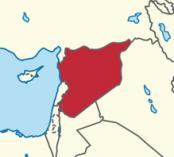
The U.N. secretary-general, Ban Ki-moon, took a veiled swipe Thursday at U.S. and Saudi air operations in Afghanistan and Yemen, denouncing “so-called ‘surgical strikes’” that hit medical facilities last year as “assaults on our common humanity.”
The U.N. chief did not specifically name the United States and Saudi Arabia. But senior U.N. officials said privately that Ban had those two governments primarily in mind.
One senior U.N. official said Ban is also deeply concerned about the Syrian regime’s air power in heavily populated towns in that country’s civil war, where Damascus routinely bombards rebel-controlled towns with barrel bombs. Russia, which is accused of killing as many as 800 civilians in airstrikes since it entered the war last September to bolster the Syrian government, is also a top concern, said the U.N. official, who spoke on condition of anonymity.
This week, the Christian Science Monitor reported that Russian aircraft allegedly destroyed a school in the town of Anjara, nine miles outside of Aleppo, killing at least 12 children and one adult, according to the U.K.-based Syrian Observatory for Human Rights. Russia’s Foreign Ministry has denied the charges and questioned the observatory’s credibility.
Ban’s address Thursday before the U.N. General Assembly served as the U.N. chief’s take on the state of the world.
After ticking off a list of diplomatic achievements during the past year, from the Iran nuclear deal to the containment of Ebola, Ban turned to the grim milestones of 2015: record heat waves and refugee flows, the rise of the Islamic State in the Middle East, growing polarization of Israelis and Palestinians, and deepening crises from South Sudan to Burundi, which he noted, “teetered on the edge of cataclysm.”
“Our global landscape is blighted with the brazen and brutal erosion of respect for human rights and international humanitarian law,” he said. “We see this in the sale of women and girls as sexual slaves, in so-called ‘surgical strikes’ that end up striking surgical wards, in the use of barrel bombs by the government of Syria, and the reported use of cluster munitions in Yemen.”
“Such acts are not just the inevitable fallout of armed conflict; they are assaults on our common humanity,” Ban said.
On Oct. 3, an American gunship struck a hospital run by Doctors Without Borders, which is also known by its French acronym MSF, in the Afghan city of Kunduz, killing at least 42 staff, patients, and caretakers in what the top U.S. general in Afghanistan, Gen. John Campbell, called “a tragic but avoidable accident caused primarily by human error.”
A White House spokesman declined to respond directly to Ban’s remarks, referring Foreign Policy to previous U.S. statements that note the Defense Department is investigating the incident in Kunduz and highlight Washington’s concerns over civilian casualties in Yemen.
A U.S.-backed, Saudi-led air coalition in Yemen destroyed a hospital administered by MSF in Hayden district on Oct. 26 and hit a medical facility near Taiz on Dec. 2, wounding nine people. Last Sunday, the MSF-supported Shiara Hospital in northern Yemen was struck by a projectile, killing at least five and injuring 10. The relief organization said it was not clear whether the hospital was struck by aircraft or artillery, complicating efforts to establish who was responsible.
“All warring parties, including the Saudi-led coalition, are regularly informed of the GPS coordinates of the medical sites where MSF works,” Raquel Ayora, MSF director of operations, said in a statement. “There is no way that anyone with the capacity to carry out an airstrike or launch a rocket would not have known that the Shiara Hospital was a functioning health facility providing critical services and supported by MSF.”
Ban’s speech came against the “shocking” specter of starvation in the Syrian city of Madaya, where humanitarian workers were allowed to distribute aid this week after being blocked since October. He called Madaya “the victim of deliberate starvation.”
“Let me be clear: The use of food as a weapon of war is a war crime,” Ban said. “All sides — including the Syrian government, which has the primary responsibility to protect Syrians — are committing atrocious acts.”
Ban’s characterization of the suffering in Madaya contrasted sharply with Syria’s U.N. envoy, Bashar al-Jaafari, who told reporters in New York this week that reports of severe deprivation were nothing but “allegations and lies” sown by Persian Gulf news agencies in order to “torpedo” upcoming political talks on the future of Syria in Geneva later this month.
“There was no starvation in Madaya,” Jaafari said.
Ban said some 400 men, women, and children in Madaya are in danger of dying as a result of malnutrition. U.N. teams that entered the town this week to deliver life-saving aid have “witnessed scenes that haunt the soul. The elderly and children, men and women, who were little more than skin and bones.”
“There can be no denying their suffering,” he added. “I would say they are being held hostage, but it is even worse. Hostages get fed.”
FP national security reporter Dan De Luce contributed to this report.
This article originally appears on Foreign Policy’s website: http://foreignpolicy.com/2016/01/14/u-n-chief-strafes-u-s-and-saudi-arabia-over-airstrikes-on-medical-facilities/?utm_content=buffer281a7&utm_medium=social&utm_source=twitter.com&utm_campaign=buffer

